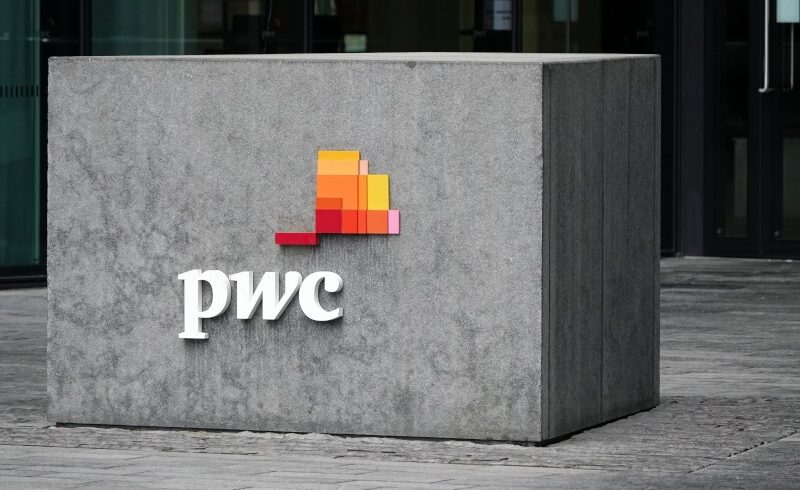
Irish firms ‘recognise the potential of advanced technologies, but many are still finding their footing’, says PwC Ireland’s Leonard McAuliffe.
Less than half of organisations worldwide are “very capable” of withstanding a major cyberattack, even as AI and quantum pose new challenges to the threat management landscape, finds PwC in its 2026 Global Digital Trust Insights survey.
The survey gathered insights from 4,000 business and technology executives from across 72 countries and territories, including Ireland.
According to the survey, 57pc of Irish businesses are increasing their investments into cyber risk management, slightly lower than the global average of 60pc this year.
While 78pc of those surveyed worldwide said that their cybersecurity budget would increase in the coming year with AI being their top priority.
Last year, 66pc of Irish organisations said they would be increasing their cybersecurity budget in the coming year, lower than the global average at the time.
But Irish organisations this year are placing supply chains under more scrutiny, with 32pc changing suppliers to reduce exposure to third-party risks, placing themselves ahead of their global counterparts at 26pc.
The top AI attack scenarios that organisations worldwide are most concerned about include AI-powered malware (62pc), AI-powered supply chain attacks (56pc) and deepfake social engineering (48pc).
35pc of organisations globally are prioritising agentic AI as a security capability over the next year. But in Ireland, 42pc of leaders are uncertain as to the value of AI for cyber defence, the survey finds, above the global average of 34pc.
“The survey reveals that cyber priorities are shifting and technologies like AI and quantum computing are reshaping risk,” said Leonard McAuliffe, a cybersecurity partner at PwC Ireland.
“For Irish firms, the message is clear – they recognise the potential of advanced technologies, but many are still finding their footing. Building clarity, confidence and capability will be key to unlocking their full value,” he added.
The most damaging cyber breach in the last three years has cost more than $500,000 for 39pc of the global respondents, PwC finds. Of this, 11pc said the cost was in excess of $10m and 3pc said it cost more than $20m.
In Ireland, the average cyber ransom cost large companies nearly €700,000 last year, with one in three large enterprises admitting to paying at least one ransom in the last year, according to Expleo.
“Planning ahead is also critical. European regulations like the Digital Operational Resilience Act and the Network and Information Security Directive 2 are reinforcing the need for forward-thinking cyber strategies that embed resilience into the core of the business,” said Moira Cronin, a business assurance partner at PwC Ireland.
Behind on quantum but ahead in upskilling
It is estimated that quantum computing could break current encryption protocols by 2030. Experts recommend that businesses should move toward cryptographic protocols to ensure quantum security.
Quantum computing threats represent one of the top-ranked threats that global organisations told PwC they are least prepared for.
Just 8pc of Irish organisations are actively implementing quantum-resistant technologies, the survey found. This is lower than the global average of 22pc. That said, a higher number of Irish companies (67pc) are either exploring quantum secure options or are piloting the tech – slightly above the global average of 62pc.
A general lack of understanding around post-quantum risks, limited resources and competing demands has meant that just 33pc of companies worldwide have implemented a range of quantum-security measures, the survey finds.
Although, Irish firms have a strong commitment to continuous security training, ahead of global counterparts, PwC’s report reads.
42pc of the surveyed Irish companies said that a lack of knowledge has been the top challenge in applying AI for cybersecurity over the last year, less than the global average of 50pc. A similar number (43pc) said that ongoing security training will shape their cybersecurity spending over the next year, considerably ahead of their global counterparts at 28pc.
Irish businesses are trying to address the cyber talent gap by upskilling and reskilling their staff, via AI and machine learning tools and with security automation tools.
At the same time, many businesses in the country (35pc) are also looking to recruit third-party cybersecurity services in the next year. The strategic shift reflects a growing demand for specialist expertise, PwC finds.
“In Ireland, the survey highlights a commitment to increasing investment in cyber risk but greater focus is needed on using AI for cyber defence and on proactive cybersecurity measures,” said McAuliffe.
“This year’s findings show that resilience comes from foresight, not hindsight. Organisations should ensure that they are also investing in AI and cyber skills, prioritising the upskilling and re-skilling of their cyber teams in order to clearly and proactively map the cyber risks they face.”
Don’t miss out on the knowledge you need to succeed. Sign up for the Daily Brief, Silicon Republic’s digest of need-to-know sci-tech news.





